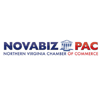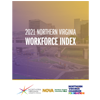Week 6 of the 401st Session of the Virginia General Assembly was crossover week, after which both chambers can only act on bills passed by the other. Both the House and Senate had very long floor sessions on Monday and Tuesday, with the Senate adjourning well past midnight on Tuesday night. Many of the bills we were watching did not make it through crossover, including the repeal of right-to-work and fair share, the Green New Deal and paid family leave.
This Sunday, the House and Senate money committees will unveil their budget proposals.
The Northern Virginia Chamber will continue to maintain a full-time presence in Richmond during the session, this year aided by additional contracted lobbyists from Williams Mullen. For more information regarding the Chamber’s business advocacy efforts and to see our 2020 Legislative Agenda, please visit the Chamber’s website at https://novachamber.org/2020-legislative-session.html.
Business Climate (Minimum Wage and Right to Work)
The House and Senate passed very different minimum wage bills this week. For Right to Work, both the full repeal HB153 (Carter) and “fair share” SB426 (Saslaw) did not pass their respective bodies.
- Minimum Wage
A heavily amended version of SB7 (Saslaw) was approved by the Senate on Feb. 11 with a 21-19 party line vote. Under this bill, the minimum wage would rise to $9.50 on Jan. 1, 2021, $10.50 on July 1, 2022, and $11.50 on July 1, 2023. Beginning July 1, 2024, Virginia will have a regional minimum wage. The regions will consist of localities with similar median income and cost of living. The region with the highest median income, likely to be Northern Virginia, will be the so-called “index region” and beginning on July 1, 2024 will have a minimum wage of the current wage plus $1. For the other regions, the minimum wage will be the sum of current wage and the adjustment for the index region multiplied by the ratio of that region’s median household income to the median income of the index region. For example, assume the index region has a median income of $100,000 and Region 2 has a median income of $70,000. For 2024, that means Region 2 will have a $12.20 minimum wage – $11.50 + ($1.00 x .70) = $12.20. These adjustments will occur annually until the Index Region’s minimum wage reaches or exceeds $15.00 at which point the Index Region’s wage will rise according to CPI-U and the other regions will continue to be adjusted according to the formula in the example.
The House-approved bill, HB395 (Ward), is far simpler and does not consider regional implications of a higher minimum wage. That bill raises the minimum wage to $10.00 on July 1, 2020 and then gradually to $15.00 on July 1, 2024. After that, the wage is pegged to the Consumer Price Index.
The differences will likely need to be worked out in conference. One key committee member said in addition to the differences between the two bills, the complexity of the Senate version will make it difficult for the House to accept that version. The Chamber will be working to keep the regional considerations in the final bill as it aligns with our position in the 2020 Legislative Agenda.
- “Fair Share” and Right to Work
SB426 (Saslaw) would have required employees to pay a pro rata share of a union’s collective bargaining expenses if that union in effect represented the employee in that bargaining. That bill was defeated in the Commerce and Labor Committee on Feb. 9 with Sens. Saslaw, Surovell and Ebbin voting against passing it by indefinitely.
HB153 (Carter) was approved by the House Labor and Commerce Committee last week but was not heard in Appropriations Committee.
Required Employee Leave Proposals
Many of the bills on mandated leave did not survive crossover. HB825 (Carroll Foy) was left in Appropriations much like the full right to work repeal. HB825 would have created a program, paid for by higher payroll taxes on employers and employees, to provide employees up to 12 weeks of annual leave for reasons included in the federal, non-paid, Family and Medical Leave Act. Its Senate companion, SB770 (Boysko), was passed by indefinitely in Committee last week.
HB898 (Guzman) was also left in Appropriations, but its Senate companion SB481 (Favola) was approved by the Senate 23-17, with Republican Sens. Jill Vogel and Jennifer Kiggans joining Democrats in support. Under SB481, employees accrue one hour of leave per 30 hours of work and can earn up to 40 hours per year. Accrual begins on January 1, 2021 or at the date of hire, whichever is later. Employers with less than 15 employees are exempt, as are federal employees. If an employer already offers leave to employees that can be used for the reasons in the bill, it is not required to offer additional leave. There are additional provisions in the bill related to shift work, requiring documentation, leave donation, and good faith effort for advanced notification. The bill also prohibits termination or demotion of, or discrimination against, an employee taking up to 16 hours of unpaid sick leave annually.
Research & Development Tax Credits
The Chamber through its membership in the R&D Tax Credit Coalition is supporting SB110 (Howell) and HB748 (Jones) which would extend the sunset and increase the caps imposed when the program was created in 2016. Both bills were approved by their respective chambers, and SB110 was already reported to the full House by the Finance Committee on Feb. 12. That version extends the sunset date for both the small R&D credit and the major R&D credit to 2025 and raises the cap on the small credit to $7.77 and on the major credit to $22 million.
Energy Bills
This General Assembly has a very strong interest in pursuing new clean energy policies for the Commonwealth and members have introduced a variety of bills to do so. Our 2020 Legislative Agenda supports initiatives that promote a diverse, reliable, efficient, and affordable energy portfolio to support a growing economy, while contributing to the Commonwealth’s economic development and environmental goals.
- Virginia Energy Plan
HB714 (Reid) and SB94 (Favola) were approved by the House and Senate and crossed over. The bills call for the creation of a Virginia Energy Plan, which includes a target of net-zero emissions in Virginia by 2045. The Chamber is supportive of this approach to clean energy policy because it includes private sector engagement, considers economic implications of the transition to clean energy, and is generally a more business-minded approach to clean energy policy.
- Virginia Clean Economy Act
HB1526 (Sullivan) and SB851 (McClellan) were also approved by their respective chambers this week. Referred to as the Virginia Clean Economy Act, these bills set interim targets for the use of renewables on the path toward 100 percent renewable energy generation by 2050. These are very far reaching bills and patrons have been meeting with a number of stakeholders throughout the session and even more changes are expected post-crossover. There is broad support for these bills, particularly by the renewable energy industry.
- The Green New Deal:
The Green New Deal (HB77) was left in Appropriations prior to crossover.
Taxing Authority
HB785 (Watts) and SB588 (Hanger) would equalize taxing authority between counties and cities. Both bills were approved by the House and Senate, respectively, and both prohibit a locality with a recent failed meals tax referendum from adopting a meals tax within a certain timeframe. The Chamber will continue to work with the patrons and Committee members to retain this prohibition.
Transportation Omnibus Bills
HB1414 (Filler-Corn) and SB890 (Saslaw) were approved by their respective chambers. These are the transportation omnibus bills that would implement the Governor’s budget proposal, partially restoring money diverted from the Northern Virginia Transportation Authority to WMATA in 2018 by raising the grantor’s tax, transient-occupancy tax, and statewide gas tax. HB729 (Watts) was also approved by the House on Feb. 11. This bill generates an additional $40 million for the Northern Virginia Transportation Authority. With the highest amount in the omnibus bills, and the money included in an I-81 bill last session, the total restoration of NVTA money is projected to be around $90 million. This is a substantial restoration of the $100 million diverted to WMATA in 2018 and the Chamber will be working to include HB729’s provisions in the transportation omnibus bills.
Education and Workforce Bills
One policy area where Chamber priorities will advance this session is in education and workforce development. There are a number of these bills we are supporting that, when taken together, show a strong interest by this General Assembly in workforce development. The Chamber is very encouraged that our legislators have heard from the business community that more is needed to fill open jobs and create tomorrow’s workforce.
- Dual Enrollment and Work-Based Learning:
The House and Senate approved companion legislation – SB112 (Suetterlein) and HB516 (Bulova) which require the Board of Education to include in its high school graduation requirements the options for students to complete a dual-enrollment course or high-quality work-based learning experience in place of an Advanced Placement or International Baccalaureate course. HB516 was approved by Senate Education Committee on Feb. 13.
HB524 (Subramanyam) was unfortunately left in Appropriations. This bill would have created a registry where IT and cybersecurity professionals would sign up to assist localities and school districts with mentorship and other workforce development opportunities.
HB1680 (Tyler) was unanimously approved by the House on Feb. 10. This bill would require the Board of Education to update its Career and Technical Education Work-Based Learning Guide to expand the opportunities available for students to earn credit for graduation through high-quality work-based learning experiences.
Association Health Plans
The Northern Virginia Chamber remains supportive of association health plan legislation (HB795-Hurst, SB235-Barker, SB861-Mason), which would allow associations like Chambers of Commerce to offer health coverage to small businesses. This helps small business gain access to more affordable healthcare for their employees. Last session, Gov. Northam vetoed legislation regarding association health plans. The Virginia Chamber took the lead in working through his list of objections. All three bills were approved prior to crossover.
Budget
On Sunday, the House Appropriations and Senate Finance and Appropriations committees will unveil their budget proposals. The Chamber’s highest priority is funding for Gov. Northam’s G3 program which provides tuition-free community college available to low- and middle-income students who pursue jobs in high-demand fields. The proposed budget calls for $72.5 million each for 2021 and 2022. In speaking with House committee members it appears the funding is safe but may be reduced from what the Governor proposed. The Administration projects $20 million to go to Northern Virginia Community College.
These weekly updates are meant to provide a snapshot of how the Chamber is advocating on behalf of our members at the General Assembly. If you would like to know how the Chamber is engaging on a topic not included in this update, please contact Vice President of Government Relations Clayton Medford (cmedford@novachamber.org).















